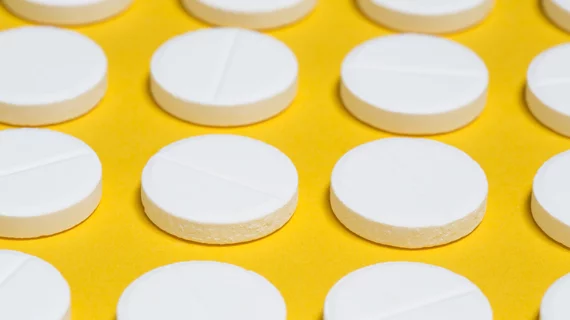HHS proposals for 340B drug pricing program prompt industry objections
CMS recently laid out several proposals for 2019 with wide-ranging impacts, including changing a payment add-on to hospitals for a drug pricing program known as 340B. The proposed changes, which are on top of other cuts to payments, are being called out by industry associations and providers.
The 340B program allows certain hospitals to purchase outpatient drugs from manufacturers at or below specified prices. They are then reimbursed when Medicare beneficiaries are treated with these drugs. Reimbursement rates were already cut for 2018, from 106 percent of the average sale price (ASP) of drugs to 77.5 percent for some facilities.
That cut prompted a lawsuit from the American Hospital Association challenging the payment drop. On July 17, a District of Columbia circuit court dismissed the complaint, citing a lack of subject matter jurisdiction. AHA stated the organization plans to refile “promptly” in district court.
CMS further proposed reducing the add-on rate from 6 percent of the ASP amount to 3 percent in the Physician Fee Schedule for 2019.
“CMS believes that reducing the 6 percent add-on for [wholesale acquisition cost]-based Part B drug payments would help curb excessive spending by better aligning payments and drug acquisition costs, especially for drugs with high launch prices,” the agency stated in its announcement of the proposal. “The payment reductions would also decrease beneficiary cost sharing.”
The proposal comes about two months after HHS revealed its Blueprint to Lower Drug Prices and Reduce Out-of-Pocket Costs that included several measures impacting the 340B program, which, according to AHA, represented just 3.6 percent of total drug spending in 2016.
The AHA vehemently opposed many of the changes proposed in the blueprint.
“Any focus on the 340B program as part of a plan to lower drug prices is misplaced,” AHA wrote in its July comments to HHS on the blueprint. “Efforts to scale back the program would have devastating consequences for the communities served by 340B hospitals while only driving more revenue to drug manufacturers.”
Several other industry groups have also taken issue with some of the proposed reforms.
The controversy over the 340B program also comes at a time when large drug-makers, including Pfizer, have come under fire for price increases. HHS Secretary Alex Azar recently stated “change is coming” with respect to drug pricing, noting that the 340B program has rapidly expanded since the passage of the Affordable Care Act.
“This growth has occurred without any increase in statutory oversight,” Azar said at an industry conference speech on July 9 in Washington, D.C.
Growth in the program, however, has largely been driven by large price increases by drug manufacturers, the AHA argued in its comments.
The public comment period for HHS’s Blueprint ended Monday, July 16. More than 3,000 comments were submitted.

